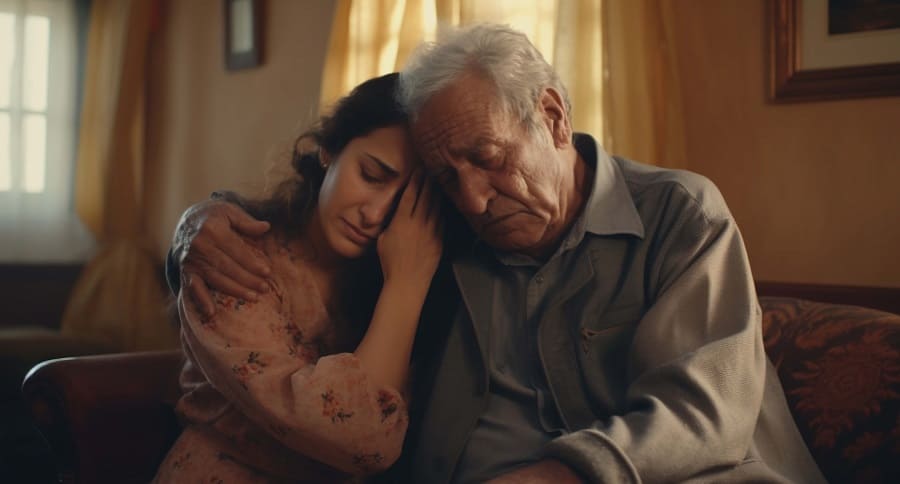Currently Empty: $0.00

Ensuring Quality Care in Nursing Homes: Understanding the Role of Doctors
Nursing homes are designed to offer a secure and supportive environment for elderly individuals who need assistance with daily activities and medical care. However, instances of abuse and neglect occur all too often.
When a loved one enters a nursing home, families have many concerns, particularly about medical care. A common question is, “Who will be their doctor?” Understanding how doctors are assigned to nursing home residents is a critical component of ensuring proper care.
This guide explores the role of doctors in nursing homes and hopefully provides valuable insights on how you can best advocate for your loved one’s well-being.
The Role of Doctors in Nursing Homes
Many people assume that a resident’s primary care physician will continue overseeing their medical care in a nursing home. However, nursing homes typically do not facilitate visits to outside primary care providers, or have an on-site doctor available at all times. By law, a doctor is only required to visit once a month after a resident’s admission. Each resident is assigned a primary care physician who is responsible for overseeing numerous patients, conducting monthly rounds to address medical needs. Additional visits may occur if there is a significant change in the resident’s condition.
Understanding Assigned Doctors
Doctors assigned to nursing home residents manage their healthcare needs. Unlike family physicians who have long-term relationships with patients, these doctors may have limited knowledge of medical history.
Communication Challenges
Unlike primary care physicians who may be readily accessible, nursing home doctors can be difficult to contact. Communication barriers can lead to frustration and uncertainty about a loved one’s care.
Factors contributing to communication challenges include:
- Limited direct access to the doctor, requiring family members to communicate through nursing home staff.
- Potential miscommunication or delays in relaying concerns.
- Cognitive decline or emotional distress in residents, making it harder for them to advocate for their own needs.
- Instances where nursing home doctors may deprioritize resident care or dismiss family concerns, leading to frustration and helplessness.
Advocating for Your Loved One’s Well-Being
To ensure the best possible care, family members should take an active role in advocating for their loved ones. Here are key steps our nursing home neglect lawyers recommend:
- Establish Communication
Regular contact with healthcare providers is vital. Obtain the doctor’s contact information upon admission and introduce yourself, expressing your intent to be involved in your loved one’s care. Providing the doctor with a detailed medical history can help ensure proper treatment. Request access to medical records and stay informed.
- Attend Care Conferences
Participate in care planning meetings to stay updated on your loved one’s treatment plan. These meetings offer an opportunity to voice concerns and ensure the best possible care.
- Keep Detailed Records
Maintain thorough records of medical history, medications, and any changes in health. This information is crucial for discussions with healthcare providers.
- Be Persistent
Effective advocacy often requires persistence. If you face difficulties in communicating with the doctor or addressing concerns, continue raising the issue until a satisfactory resolution is reached.
- Seek Legal Assistance
Unfortunately, neglect and abuse in nursing homes do occur. If you notice signs of mistreatment, such as unexplained injuries, poor hygiene, or a lack of medical attention, legal intervention may be necessary. A nursing home abuse attorney can help protect your loved one’s rights and ensure they receive the care they deserve.
Frequently Asked Questions
How often should a doctor visit my loved one in a nursing home?
By law, nursing home doctors are only required to visit residents once a month, though additional visits may occur based on medical needs.
What are signs that my loved one is not receiving proper medical care?
Warning signs include unexplained injuries, untreated medical conditions, poor hygiene, sudden health declines, and a lack of medical attention.
How can I ensure my loved one’s medical needs are met?
Maintain open communication with healthcare providers, visit regularly, stay informed about their treatment, and address concerns promptly.
What should I do if I cannot reach my loved one’s assigned doctor?
Contact the nursing home administration to request alternative means of communication. If difficulties persist, consider seeking legal guidance.
Navigating a loved one’s care in a nursing home can be challenging. By understanding the role of doctors and taking proactive steps, you can help ensure they receive the best possible care. If you are concerned that your loved one has been the victim of elder abuse or neglect while under the care of a nursing home, contact an elder abuse lawyer to find out if you have a case.

